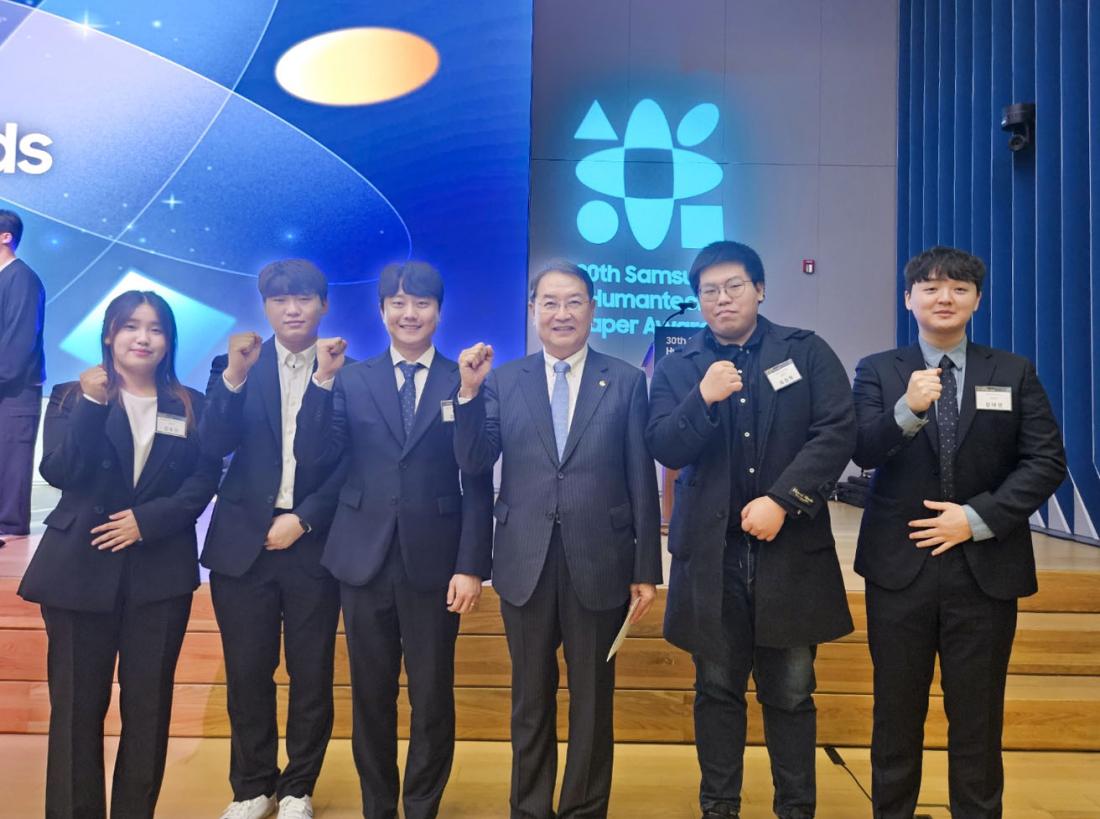□ Students at DGIST (President Lee Kun-woo) won six awards, including the grand prize, at the 30th Samsung Humantech Paper Award, the largest event held in Korea.
□ DGIST, which is celebrating its 20th year of establishment, demonstrated its outstanding performance by securing the 7th position globally in paper citations per faculty member, a key metric of research influence in the latest QS World University Rankings. This accolade reaffirms its position as a leader in world-class research.
□ Kim Jin-woo at the Department of Electrical Engineering and Computer Science (EECS) won the grand prize, awarded to only one person across all departments, and received a total prize of KRW 40 million. To address the issue of limited depth of laser treatment due to light scattering, Kim conducted research on a technology for increasing the laser penetration depth using lower ultrasonic energy. This technology, aimed at enhancing the depth of laser treatment, is set to be extensively implemented across various clinical applications, thereby enhancing the efficacy of laser treatments in both skincare and medical domains. Although the grand prize might not have been awarded had there been no suitable candidates, Kim's outstanding research achievements ultimately led to his winning.
□ Kang Yu-min at the Department of Physics and Chemistry and Seol Tae-ryung from the Department of EECS won a silver prize in the fields of “Material Science & Engineering” and “Circuit Design,” respectively. Kang developed a simplified multi-cell separation technology that involves using the changes in local magnetic energy based on the structural modification of a micro-magnetic device. Seol developed a hybrid measurement system for precisely recording electric potential and biocurrent signals simultaneously, which is applicable to miniature high-performance medical devices. Furthermore, Choi Won-hyuk at the Department of EECS received a bronze prize in the “Signal Processing” field for his research on improving 3D object estimation performance by employing a metric learning technique.
□ Park Ji-hoon at the Department of EECS and Yang Jun-mo from the Department of Robotics and Mechatronics Engineering won the participation prize in the fields of “Signal Processing” and “Mechanical Engineering,” respectively. Park developed a model capable of transforming the style of an object corresponding to text in a given image; Yang conducted research on improving the mobility of existing robots that cannot perform with one hand by supporting P-COE.
□ After winning the grand prize, Kim expressed gratitude to Professor Jang Jin-ho for his guidance and stated, “I will continue pursuing research that contributes to society through ongoing challenges and advancements in the future.”
□ DGIST President Lee Kun-woo remarked, “As DGIST celebrates its 20th anniversary, it is a remarkable achievement to showcase the excellence of the institution, both internally and externally, through this award, despite its relatively short history.” He further added, “We are committed to striving harder to achieve parity with world-class universities, boasting exceptional faculty and students.”
□ Meanwhile, “Samsung Humantech Paper Award” is an annual paper award initiated by Samsung Electronics in 1994, marking its 30th anniversary this year. The award is given to recognize innovative and ambitious science students from domestic and international universities, graduate schools, and high schools, who will spearhead the future of science in Korea.



